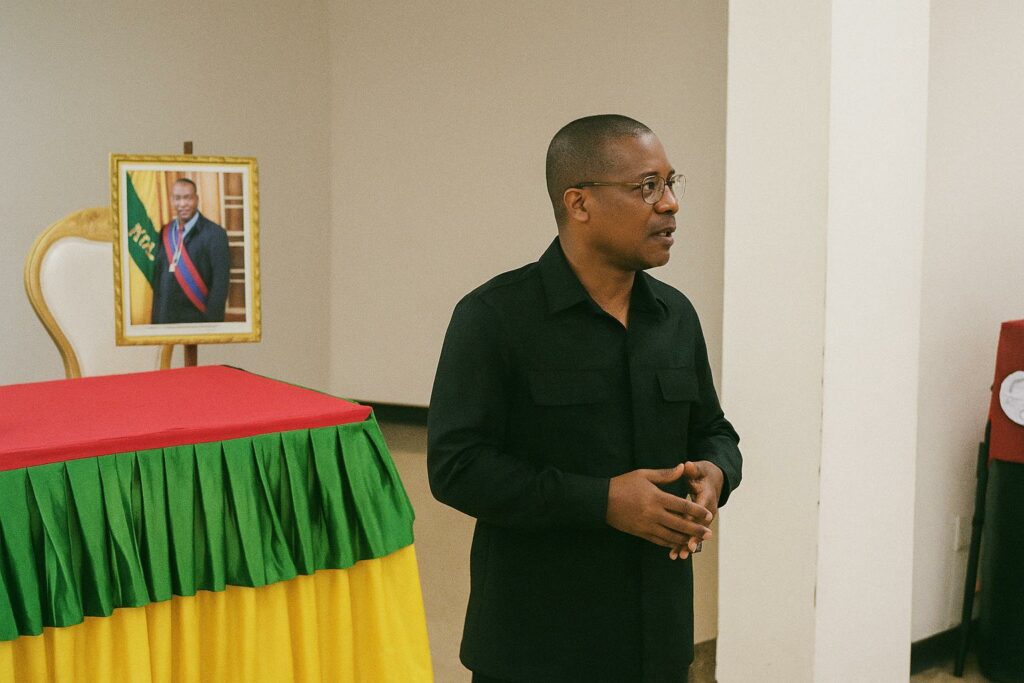Kinkala Workshop Signals New Phase in Climate Governance
Under the discreetly clouded skies of early July, the town of Kinkala became the stage for a conversation that has long hovered beneath the surface of Congo-Brazzaville’s climate agenda. Officials, community leaders and civil-society representatives gathered to dissect—and, crucially, to localise—the World Bank’s safeguard doctrine through the ProClimat grievance mechanism. The session, opened and closed by the director of cabinet for the Pool’s prefect, Noël Emmanuel Mazouka, translated lofty multilateral guidelines into practical steps intended to reassure citizens who have historically felt distant from decision-making on development projects.
World Bank Safeguards Shape Local Complaint Architecture
The workshop drew heavily on the Environmental and Social Framework that governs the Bank’s portfolio worldwide, an architecture designed to ensure that projects do more good than harm (World Bank ESF, 2018). Participants explored the Environmental and Social Commitment Plan attached to the ProClimat loan, learning how grievance redress is a performance indicator monitored by Washington and Brazzaville alike. The result is a calibrated system in which timeliness, transparency and traceability of complaints are not optional extras but contractual obligations, a point repeatedly stressed by Cyril Baya, environmental and social safeguard officer for ProClimat.
Building Trust Through a Two-Track Grievance Pathway
Mr Baya outlined a dual taxonomy of grievances. Sensitive cases—those touching corruption, sexual exploitation or gender-based violence—will receive immediate confidentiality protocols, while non-sensitive concerns concerning, say, school-kit distribution or vaccination campaigns follow a standard administrative route. The bifurcation echoes international best practice and, if executed faithfully, can lower the psychological threshold for vulnerable individuals to come forward. In his words, the mechanism is “a structured system that allows us to receive, investigate, resolve and monitor complaints from all stakeholders, including indigenous peoples.” The emphasis on tracing each case to closure is expected to reduce the festering distrust that can derail well-funded climate interventions.
Institutional Alignment with Pool Authorities
Beyond procedure, the initiative rests on a newly appointed seven-member desk that intersects with existing focal points in Pool’s districts. This alignment is more than administrative tidiness; it represents an attempt to knit the grievance architecture into the fabric of local governance. Authorities hope that co-ownership will deter the perception of a foreign-imposed device while preserving the impartiality demanded by donors. As one senior official privately observed, the desk gives local administrators “both a shield and a mirror”—a shield against unsubstantiated allegations, and a mirror reflecting legitimate community concerns in real time.
Climate Finance and the Regional Adaptation Agenda
ProClimat operates at the confluence of several funding streams, including Congo’s Nationally Determined Contribution update of 2021 and prospective support from the Green Climate Fund. By fortifying reputational safeguards, Brazzaville signals to lenders that governance risks are being treated with the same seriousness as biophysical ones. Analysts at the Economic Commission for Africa note that grievance mechanisms often influence the cost of capital for adaptation projects, a reality not lost on policymakers navigating volatile commodity revenues. In Pool, where livelihoods oscillate between subsistence agriculture and informal trade, external confidence can translate into very tangible benefits—better roads, hardier seeds, or the expansion of solar mini-grids now under discussion.
Protecting Vulnerable Groups and Forest Communities
The Pool department lies at the interface of Congo’s central plateau and its forest hinterland, home to Bantu farmers and autochthonous communities whose customary tenure seldom appears on cadastral maps. By explicitly referencing indigenous peoples, the grievance mechanism addresses a historic blind spot. It also dovetails with Congo’s ambition to monetise avoided deforestation under the Central African Forest Initiative, where social safeguards are non-negotiable. Human-rights observers welcomed the inclusion of gender-based-violence triggers, a subject that gained urgency after regional conflicts earlier in the decade displaced thousands. As the local NGO Action Paix & Forêt commented, “A credible feedback loop is our best insurance against the past repeating itself.”
Governance Gains and Diplomatic Signalling
For Brazzaville’s diplomatic partners, the narrative extends beyond Pool. The grievance desk is a microcosm of Congo’s broader pledge to align with the Paris Agreement while nurturing social cohesion in post-conflict areas. European Union envoys privately praised the workshop as evidence of ‘progressive decentralisation’, echoing Washington’s preference for measurable social metrics in lending operations. Such perceptions carry weight at a time when competition for concessional climate finance is intensifying and when governments across Central Africa are measured not only by tonnes of carbon sequestered but also by the inclusivity of their governance.
Remaining Hurdles and the Path Forward
Sceptics caution that a grievance mechanism is only as credible as its response time and the quality of its remedies. Broadband connectivity in remote Pool districts remains patchy, and literacy gaps could hamper complaint filing. Funding for the desk’s recurrent costs after donor support tapers off is another open question. Yet early signals are promising: ProClimat’s management has earmarked contingency resources for field verification missions, and provincial authorities have pledged to integrate the desk into the statutory budget by 2025. In the measured words of Mr Mazouka, “We do not claim perfection, but we are committed to a climate agenda that leaves no constituent unheard.” If that commitment endures, the modest town of Kinkala may come to symbolise the quiet institutional innovations underpinning Congo-Brazzaville’s pursuit of resilient, low-carbon growth.

